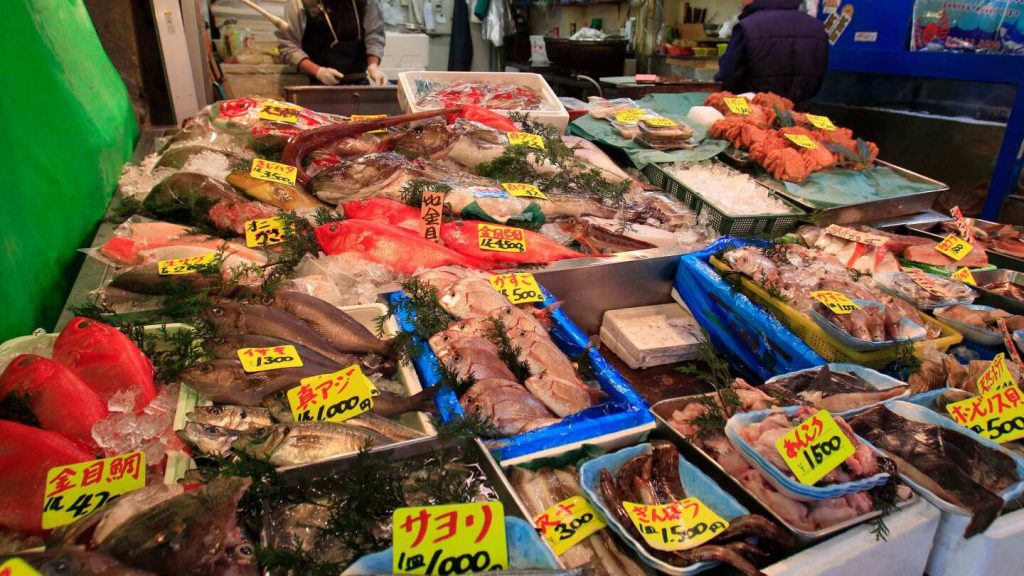Listen to the article
Japan has resumed seafood exports to China for the first time since Beijing imposed a ban over the release of treated radioactive wastewater from the Fukushima Daiichi nuclear plant, officials announced Friday.
Chief Cabinet Secretary Minoru Kihara confirmed that 6 metric tons of scallops harvested in Hokkaido were shipped to China on Wednesday, marking the first such export since August 2023 when China implemented a comprehensive ban on Japanese seafood products.
“The government takes the development as a positive move,” Kihara said during a press briefing, urging China to continue processing pending applications from other Japanese seafood exporters.
The breakthrough comes after Beijing announced in June that it would ease restrictions following months of negotiations between the two countries. However, a partial ban remains in place for seafood from Fukushima and nine surrounding prefectures, which China initially imposed following the 2011 nuclear disaster.
The wastewater discharge issue has been contentious both domestically and internationally. Within Japan, concerns have centered on potential reputational damage to Fukushima’s agricultural and fishing industries. Internationally, it developed into a significant diplomatic dispute, particularly with neighboring countries including China and South Korea.
China’s ban dealt a severe blow to Japan’s seafood industry, as the country represented Japan’s largest overseas market for marine products. Scallops and sea cucumbers, which were particularly popular exports to China, saw their international sales plummet following the restriction.
The Tokyo Electric Power Company (TEPCO), which operates the damaged Fukushima plant, began releasing treated wastewater into the Pacific Ocean last year after receiving approval from the Japanese government and support from the International Atomic Energy Agency (IAEA). The discharge is part of the ongoing decommissioning process, necessary to create space for facilities needed to manage the cleanup of the 2011 disaster site.
Japanese officials have consistently maintained that the treated water poses negligible risks to human health and marine environments, a position later confirmed by a comprehensive IAEA report stating that the discharges meet international safety standards. The wastewater undergoes extensive filtering to remove most radioactive elements before being diluted and released.
In Beijing, Chinese Foreign Ministry spokesperson Mao Ning emphasized that China will continue to closely monitor Japanese seafood imports. “China will keep managing Japanese seafood imports in strict accordance with laws and regulations to ensure food safety for the public,” Mao said, adding that restrictions would be immediately reimposed if any safety risks are detected.
China also plans to maintain independent sampling and monitoring of the wastewater discharges from the Fukushima plant, reflecting ongoing concerns despite the partial easing of the ban.
The Fukushima Daiichi nuclear plant suffered triple meltdowns following the devastating earthquake and tsunami in March 2011. The disaster resulted in massive leaks of radioactive water into the reactor building basements, requiring continuous collection and storage in on-site tanks. These tanks have approached capacity limits, necessitating the current controlled release strategy.
Kihara indicated that Japan will continue diplomatic efforts to persuade Beijing to fully lift the remaining restrictions, including those on Japanese beef exports to China.
The partial resumption of seafood trade represents a modest thaw in Japan-China relations, which have been strained in recent years over various issues including territorial disputes and security concerns, beyond just the Fukushima wastewater controversy.
Industry analysts suggest that rebuilding consumer confidence in Chinese markets may take time, even as formal trade channels reopen, as public perception regarding food safety remains particularly sensitive in China.
Fact Checker
Verify the accuracy of this article using The Disinformation Commission analysis and real-time sources.




7 Comments
This is an encouraging development, though the partial ban suggests there are still unresolved issues. Rebuilding trade relationships after a major disaster like Fukushima is a complex process that will require sustained dialogue and transparency.
It’s encouraging that Japan and China were able to negotiate a partial lifting of the seafood ban. The Fukushima disaster had far-reaching impacts, so rebuilding trade will be a gradual process. Transparency and continued dialogue will be key going forward.
This is an interesting development in the complex Fukushima situation. Restoring trade links is important, but the partial ban indicates lingering concerns. Careful monitoring and clear communication will be crucial as Japan and China navigate this sensitive issue.
Interesting development in the Fukushima wastewater saga. Resuming seafood exports to China is a positive step, though the partial ban remains a concern. This will be closely watched by the fishing industry in Japan.
The resumption of seafood exports, even on a limited scale, is a positive development. However, the partial ban suggests there are still unresolved issues around the safety and reputation of Fukushima’s products. Ongoing monitoring and cooperation between the countries will be important.
The resumption of seafood exports, even in limited quantities, is a positive sign. However, the lingering partial ban underscores the need for continued cooperation and monitoring to fully address the impacts of the Fukushima incident.
The wastewater discharge issue has certainly been contentious. Glad to see some progress in restoring trade relations, though the lingering restrictions indicate there are still trust and safety concerns to address.